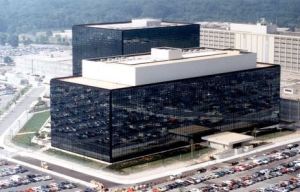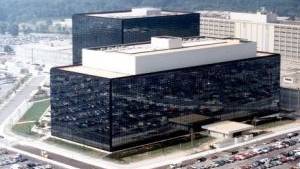Big Brother Takes over from Uncle Sam: A Single Intelligence Network for a New World Order
Source: strategic-culture.org
 National Security Agency |
While budgets are being slashed by governments around the world, national intelligence agencies are not only flush with money but they are increasingly networking their resources against the «threat». What is the threat? It is whatever national leaders and their governments deem it to be. One day it is «Al Qaeda», the next day it is Iran, then North Korea, then global narco-terrorists, and so on and so on…
Just as the North Atlantic Treaty Organization (NATO) is becoming a global military past without a distinct enemy, the Central Intelligence Agency, Britain’s MI-6, and other intelligence agencies are increasingly pooling their intelligence and networking their information-sharing networks. To what purpose would such citadels of secrecy wish to cooperate? The answer is simple. In a world of the tiny minority «haves» and the super-majority «have nots», the intelligence agencies, like national armed forces, believe there is safety in numbers. In a conflict between the minority super-wealthy and the rest of society, intelligence agencies are increasingly protecting the interests of corporations and not countries. Intelligence agencies, therefore, have decided to become a global «Panopticon» where no one can hide and no secrets are held.
For many years, attempts to create a worldwide database of personal data, beginning with basic criminal information, were forestalled by the fact that the chief promoter of such a combined on-line repository of information, the United States, lacked a government department akin to other nations’ Interior Ministries that would be natural partners of the Americans. The American Interior Department had nothing to do with internal security because it had jurisdiction over such areas as federal lands and national parks. The aftermath of the 9/11 attack on the United States created the impetus for the creation of global communication networks and data warehouses for use by intelligence agencies in the new Department of Homeland Security, America’s version of the Interior Ministry.
The Homeland Security Department, National Security Agency, Central Intelligence Agency, and Federal Bureau of Investigation now represent a massive governmental data gathering behemoth that is building on traditional and new relationships with foreign intelligence and national security agencies to build a network of shared databases. However, the network is a one-way street. The Americans want to draw the world’s intelligence into its own databases while only allowing its partners, including longtime intelligence allies like Britain and Canada to have access to only a small portion of what America is amassing in terms of surveillance and stored personal data.
In 2012, the European Union and United States agreed to allow the Americans to store for up to fifteen years Passenger Name Records (PNRs) on every European Union citizen who flies. Although there are supposed «safeguards» to prevent the exploitation of the data, attempts by some member so the European Parliament to take the agreement before the European Court of Justice were scuttled by the Eurocrats in Brussels. PNR data, like national identification numbers, are keys that unlock countless files on individuals. PNR data on a passenger’s religious dietary choices identifies a person’s religious beliefs. That information may open up additional links to databases containing details of an individual’s ethic group, health condition, and sexual orientation. Further refinement of personally-identifiable information can open up an individual’s phone and e-mail records.
[...]
Read the full article at: strategic-culture.org






















